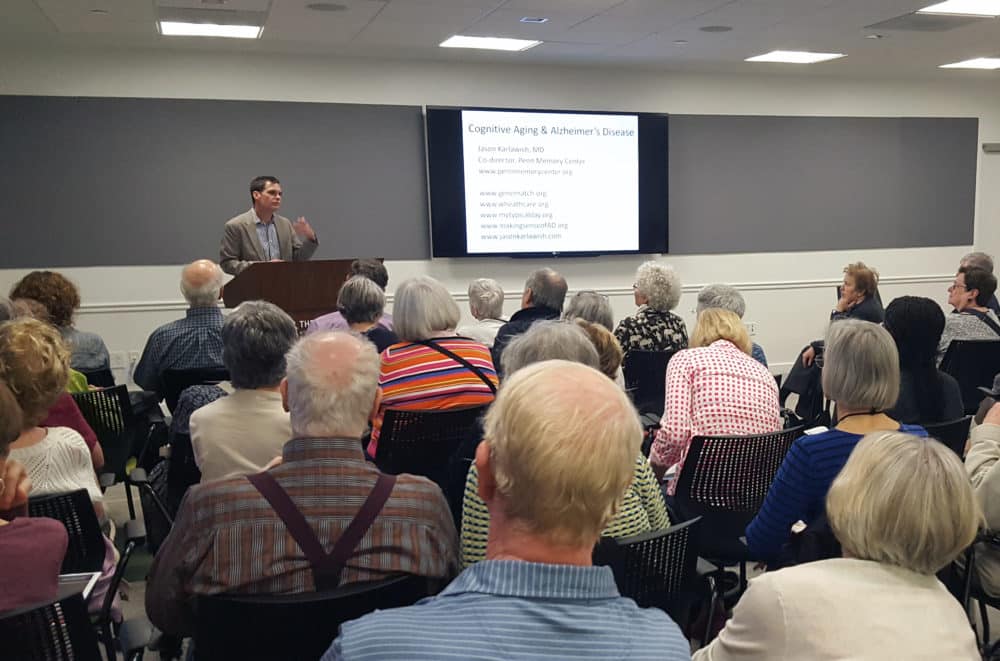The question was asked a few different times and in a few different ways, but each time the message was essentially the same: How can I prevent Alzheimer’s disease?
Facing a room of dozens of older Philadelphians, Penn Memory Center Co-Director Dr. Jason Karlawish told the crowd that while there are clinical trials at the University of Pennsylvania and across the globe, a miracle drug that will prevent or cure all types of Alzheimer’s disease and related dementias is not in sight.
There is myriad data showing that what’s good for the heart — a healthy diet and regular exercise — is good for the brain and may decrease one’s risk of dementia, especially dementia caused by vascular disease, he explained. But we’ve yet to discover a treatment that targets Alzheimer’s disease pathology.
Speaking as part of the Friends in the City Lecture Series, Karlawish encouraged the audience to consider, for example, the impact of self-driving vehicles on aging adults with memory loss. By removing the worry of getting lost traveling to a daughter’s house, a mother can maintain her independence that much longer.
“Relax the notion that it’s fun to drive, and instead embrace that it’s fun to be driven around,” he said.
Clinically, the field of Alzheimer’s disease research is at a remarkable crossroads, he said. Karlawish, a geriatrician, practices in what he called “the storytelling realm.” Spouses and adult children of patients dictate a history of memory issues that interrupt activities of their loved one’s daily life.
“But that’s about to change,” he said.
Biomarkers, whether specific genes or amyloid in the brain, will allow clinicians to diagnose Alzheimer’s disease in a patient who would have been called “normal” years ago. Clinical trials seek out these patients as research participants in the hope of developing a preventative drug.
If a trial is successful, “it will change the natural history of the disease,” he said. “We should expect to make a dent in the disease, but we’re going to need to learn to live with this disease,” said Karlawish.
Even before a pill is discovered, person with no existing dementia who learns she has an Alzheimer’s gene or biomarker will be able to make life decisions based on that information, including how to manage money, where to live, and how to use their time.
Additionally, as scientific advancements allow clinicians to use biomarkers to diagnose Alzheimer’s disease even before dementia set in, we’re going to need to learn how to live with others — our loved ones and coworkers — living with this asymptomatic disease.
Karlawish detailed research from his lab that looked at the stigma of Alzheimer’s disease and determined that there is more stigma related to the anticipated decline of cognitive abilities than there is to the general label of Alzheimer’s.
Friends in the City is a Philadelphia-based, non-profit organization for active older adults.
